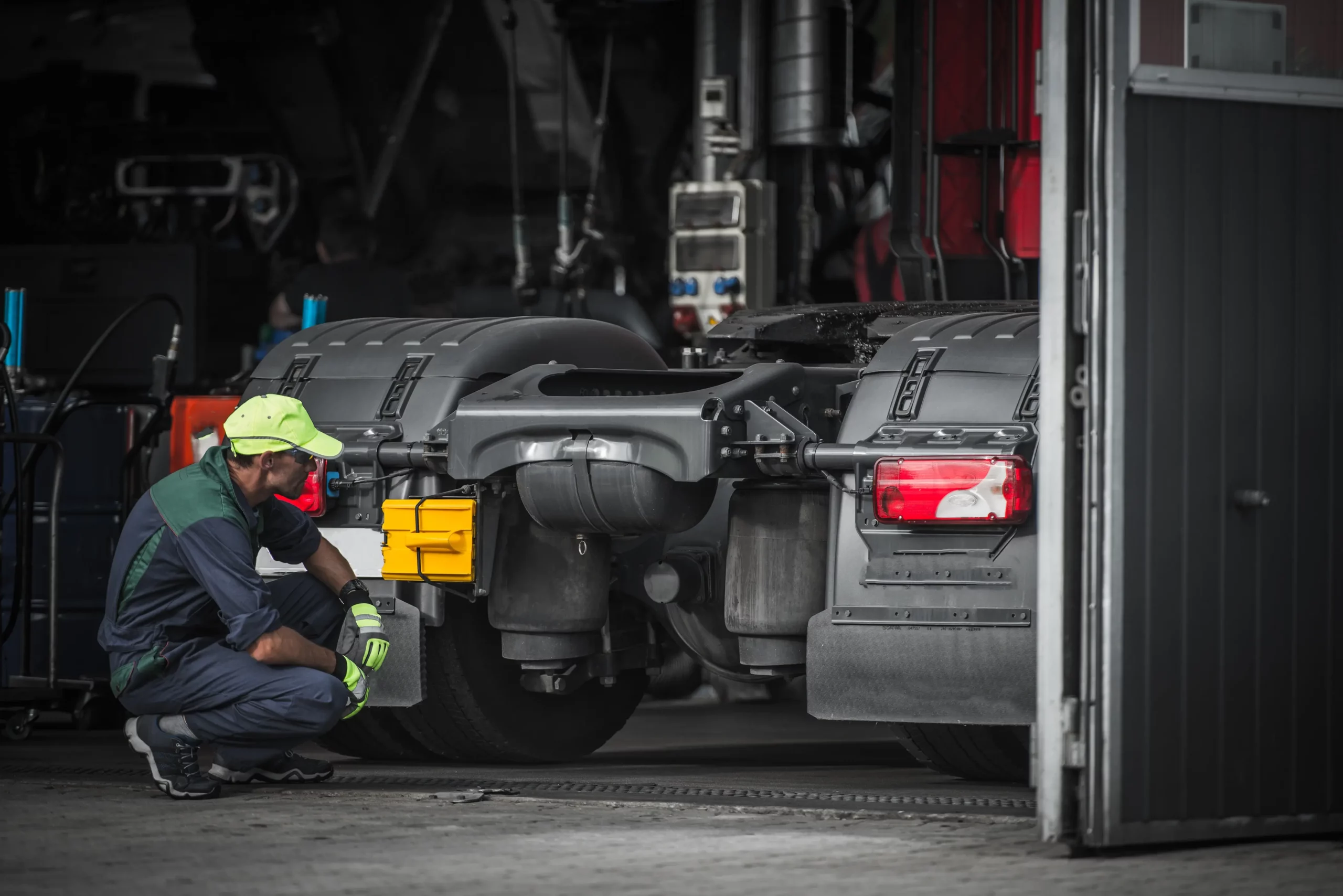
If you own a heavy-duty truck for work purposes in Canada, you’re likely familiar with the Commercial Vehicle Inspection Program (CVIP). This is a mandatory inspection that all commercial vehicles must undergo annually (or semi-annually, depending on your vehicle type and province) to ensure they meet safety standards.
The CVIP is required by law to maintain your commercial vehicle registration and operate legally on Canadian roads. If your vehicle fails this inspection, it’s crucial to address the issues promptly before getting back on the road.
These inspections are vital for the commercial vehicle industry, helping to ensure that all mechanics and owners adhere to proper maintenance protocols, keeping trucks safe and reliable.
During a CVIP inspection, a certified inspector will examine critical components of your vehicle, including:
- ECU system
- Brakes
- Exhaust
- Cargo
- Steering
- Suspension
- Tires
- Battery
- Engine
- Emergency exits
- Windshield wipers
- Trailer
- Steering Wheel
- Lighting
How Often Should You Get an Inspection
The frequency of CVIP inspections depends on various factors, including the type of vehicle and its usage. Generally, commercial vehicles are required to undergo these inspections annually. However, if your vehicle is used for more demanding tasks or operates in harsher conditions, more frequent inspections may be advisable.
It’s essential to keep track of your inspection schedule to avoid penalties and ensure your vehicle remains compliant with regulations. Additionally, regular maintenance checks between inspections can help identify potential issues early, reducing the risk of failing the CVIP.
If you’re unsure about when your next inspection is due, consult your vehicle’s registration documents or contact your local transportation authority. Staying proactive about inspections not only helps you avoid fines but also contributes to the overall safety of the roads for everyone.
Remember, a well-maintained vehicle is not just a legal requirement; it’s also a commitment to safety for you, your passengers, and other road users. So, make it a priority to keep your commercial vehicle in top condition and schedule your CVIP inspections on time.
What to Do If Your Truck Fails a CVIP Inspection
If your heavy-duty truck fails its CVIP inspection, it’s essential to identify and resolve the issue with the help of a qualified mechanic. Being proactive is key to avoiding any disruption to your operations.
You can prevent issues during your CVIP by bringing your vehicle into our service center for a preliminary evaluation. Our certified mechanics will thoroughly inspect your truck and identify what needs to be done to ensure it passes. Whether it’s replacing brakes, installing new tires, fixing exhaust systems, or checking emissions, we’ve got you covered.
Remember, road safety is a priority, and CVIP officers have the authority to stop your vehicle for checks. Failing to comply with safety standards can result in fines and operational delays, so it’s crucial to ensure your truck is inspected and up to standard as soon as possible.
For more information on MVI and CVIP inspections, as well as provincial transportation regulations, please visit the following program site:
Schedule Your CVIP Inspection Service at Inland TRUCK & EQUIPMENT
To schedule service, fill out the form below or find the nearest location to you and get in touch.
